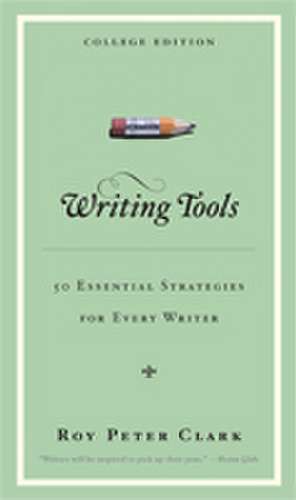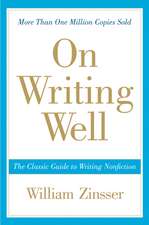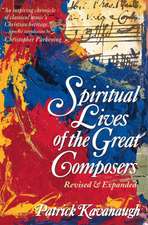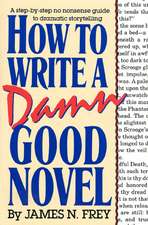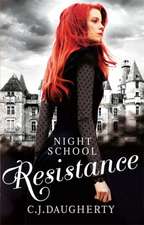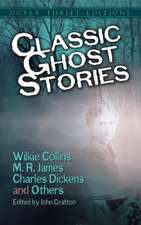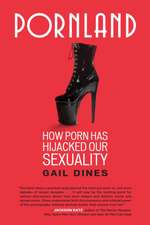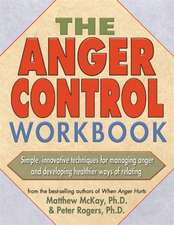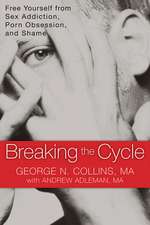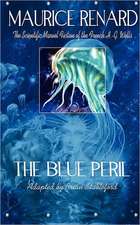Writing Tools: 50 Essential Strategies for Every Writer
Autor Roy Peter Clarken Limba Engleză Paperback – apr 2008
| Toate formatele și edițiile | Preț | Express |
|---|---|---|
| Paperback (2) | 62.64 lei 3-5 săpt. | +30.31 lei 6-12 zile |
| Little, Brown and Company – 9 ian 2008 | 62.64 lei 3-5 săpt. | +30.31 lei 6-12 zile |
| SAGE Publications – apr 2008 | 272.54 lei 6-8 săpt. |
Preț: 272.54 lei
Nou
Puncte Express: 409
Preț estimativ în valută:
52.15€ • 53.80$ • 43.52£
52.15€ • 53.80$ • 43.52£
Carte tipărită la comandă
Livrare economică 27 martie-10 aprilie
Preluare comenzi: 021 569.72.76
Specificații
ISBN-13: 9780872899636
ISBN-10: 0872899632
Pagini: 245
Dimensiuni: 150 x 211 x 18 mm
Greutate: 0.34 kg
Ediția:SPI
Editura: SAGE Publications
Colecția CQ Press
Locul publicării:Washington DC, United States
ISBN-10: 0872899632
Pagini: 245
Dimensiuni: 150 x 211 x 18 mm
Greutate: 0.34 kg
Ediția:SPI
Editura: SAGE Publications
Colecția CQ Press
Locul publicării:Washington DC, United States
Cuprins
Introduction: A Nation of Writers
I. NUTS AND BOLTS
1. Begin sentences with subjects and verbs.
2. Order words for emphasis.
3. Activate your verbs.
4. Be passive-aggressive.
5. Watch those adverbs.
6. Take it easy on the -ings.
7. Fear not the long sentence.
8. Establish a pattern, then give it a twist.
9. Let punctuation control pace and space.
10. Cut big, then small.
II. SPECIAL EFFECTS
11. Prefer the simple over the technical.
12. Give key words their space.
13. Play with words, even in serious stories.
14. Get the name of the dog.
15. Pay attention to names.
16. Seek original images.
17. Riff on the creative language of others.
18. Set the pace with sentence length.
19. Vary the lengths of paragraphs.
20. Choose the number of elements with a purpose in mind.
21. Know when to back off and when to show off.
22. Climb up and down the ladder of abstraction.
23. Tune your voice.
III. BLUEPRINTS
24. Work from a plan.
25. Learn the difference between reports and stories.
26. Use dialogue as a form of action.
27. Reveal traits of character.
28. Put odd and interesting things next to each other.
29. Foreshadow dramatic events and powerful conclusions.
30. To generate suspense, use internal cliffhangers.
31. Build your work around a key question.
32. Place gold coins along the path.
33. Repeat, repeat, and repeat.
34. Write from different cinematic angles.
35. Report and write for scenes.
36. Mix narrative modes.
37. In short works, don’t waste a syllable.
38. Prefer archetypes to stereotypes.
39. Write toward an ending.
IV. USEFUL HABITS
40. Draft a mission statement for your work.
41. Turn procrastination into rehearsal.
42. Do your homework well in advance.
43. Read for both form and content.
44. Save string.
45. Break long projects into parts.
46. Take an interest in all crafts that support your work.
47. Recruit your own support group.
48. Limit self-criticism in early drafts.
49. Learn from your critics.
50. Own the tools of your craft.
Afterword
Writing Tools Quick List
I. NUTS AND BOLTS
1. Begin sentences with subjects and verbs.
2. Order words for emphasis.
3. Activate your verbs.
4. Be passive-aggressive.
5. Watch those adverbs.
6. Take it easy on the -ings.
7. Fear not the long sentence.
8. Establish a pattern, then give it a twist.
9. Let punctuation control pace and space.
10. Cut big, then small.
II. SPECIAL EFFECTS
11. Prefer the simple over the technical.
12. Give key words their space.
13. Play with words, even in serious stories.
14. Get the name of the dog.
15. Pay attention to names.
16. Seek original images.
17. Riff on the creative language of others.
18. Set the pace with sentence length.
19. Vary the lengths of paragraphs.
20. Choose the number of elements with a purpose in mind.
21. Know when to back off and when to show off.
22. Climb up and down the ladder of abstraction.
23. Tune your voice.
III. BLUEPRINTS
24. Work from a plan.
25. Learn the difference between reports and stories.
26. Use dialogue as a form of action.
27. Reveal traits of character.
28. Put odd and interesting things next to each other.
29. Foreshadow dramatic events and powerful conclusions.
30. To generate suspense, use internal cliffhangers.
31. Build your work around a key question.
32. Place gold coins along the path.
33. Repeat, repeat, and repeat.
34. Write from different cinematic angles.
35. Report and write for scenes.
36. Mix narrative modes.
37. In short works, don’t waste a syllable.
38. Prefer archetypes to stereotypes.
39. Write toward an ending.
IV. USEFUL HABITS
40. Draft a mission statement for your work.
41. Turn procrastination into rehearsal.
42. Do your homework well in advance.
43. Read for both form and content.
44. Save string.
45. Break long projects into parts.
46. Take an interest in all crafts that support your work.
47. Recruit your own support group.
48. Limit self-criticism in early drafts.
49. Learn from your critics.
50. Own the tools of your craft.
Afterword
Writing Tools Quick List
Notă biografică
Roy Peter Clark is vice president and senior scholar at the Poynter Institute. He has taught writing at every level¿to school-children and Pulitzer Prize-winning authors¿for more than 30 years, and has spoken about the craft of writing on The Oprah Winfrey Show, NPR, and Today; at conferences from Singapore to Brazil; and at news organizations from The New York Times to the Sowetan in South Africa. A writer who teaches, and a teacher who writes, he has authored and edited fourteen books about writing and journalism.
Descriere
As fun to read as it is hands-on practical, it can be enjoyed straight-through or used as a reference as students draft, revise, and edit. Spiral-bound, the College Edition lays flat as students work at the computer, and at $16.95 suggested retail (after bookstore mark-up), Writing Tools is considerably less expensive than traditional writing textbooks. With over 30,000 copies sold to the mass-market, the College Edition is the perfect book to accompany a more comprehensive textbook, or for classrooms that don't use a traditional text at all.
Recenzii
"No
matter
what
you
write--a
blog,
a
love
letter,
the
next
great
American
novel--Writing
Toolsoffers
practical
advice
that
is
a
pleasure
to
read."—St.
Petersburg
Times
"Clark is a joyful, brilliant teacher who unlocks the mysteries of literary flow. This book is one to keep near the keyboard."—Anne Hull, national reporter for the Washington Post
"Roy is the Obi-Wan Kenobi of writing teachers....Like its author,Writing Toolsis brilliant, openhearted, and indispensable; it's easily one of the best books ever published about our craft."—Thomas French, Pulitzer Prize-winning journalist and author of Zoo Story
"Clark is a national treasure that needs to be mined aggressively."—DeWayne Wickham, USA Today
"For all the aspiring writers out there--whether you're writing a novel or a technical report--a respected scholar at Florida's Poynter Institute for Journalists pulls back the curtain on the art."—Teresa K. Weaver,Atlanta Journal-Constitution
"No matter what you write--a blog, a love letter, the next great American novel--Writing Toolsoffers practical advice that is a pleasure to read."—St. Petersburg Times
"Clark is a joyful, brilliant teacher who unlocks the mysteries of literary flow. This book is one to keep near the keyboard."—Anne Hull, national reporter for the Washington Post
"Roy is the Obi-Wan Kenobi of writing teachers....Like its author,Writing Toolsis brilliant, openhearted, and indispensable; it's easily one of the best books ever published about our craft."—Thomas French, Pulitzer Prize-winning journalist and author of Zoo Story
"Clark is a national treasure that needs to be mined aggressively."—DeWayne Wickham, USA Today
"For all the aspiring writers out there--whether you're writing a novel or a technical report--a respected scholar at Florida's Poynter Institute for Journalists pulls back the curtain on the art."—Teresa K. Weaver,Atlanta Journal-Constitution
"No matter what you write--a blog, a love letter, the next great American novel--Writing Toolsoffers practical advice that is a pleasure to read."—St. Petersburg Times
